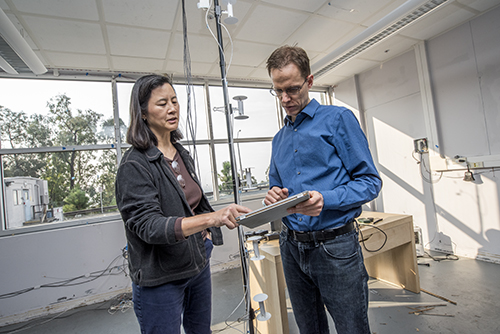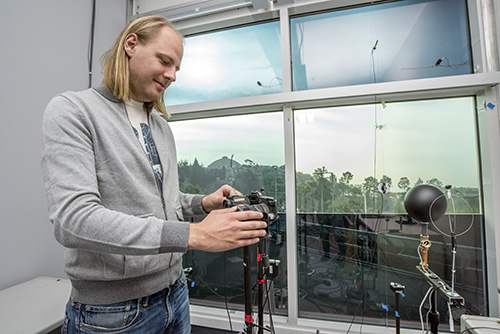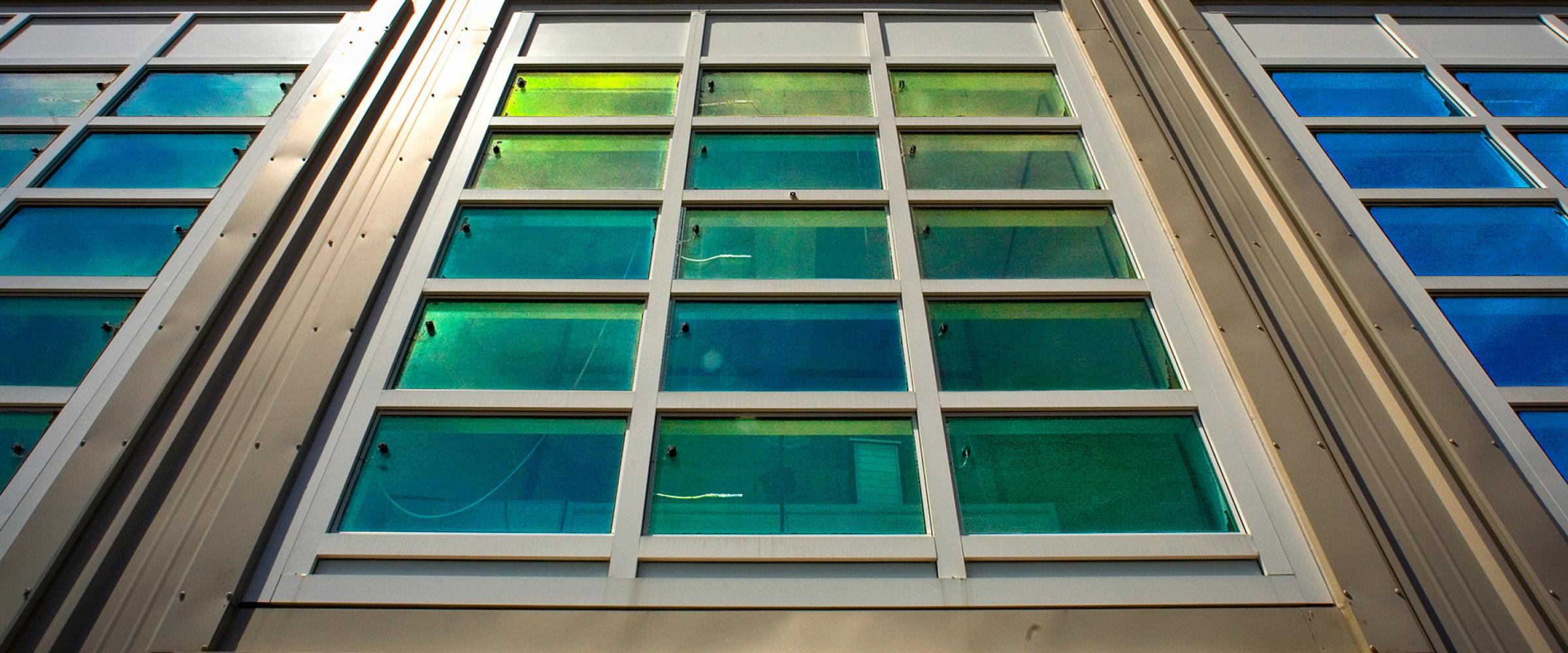Windows & Daylighting
Smart window technologies developed at Berkeley Lab, in partnership with industry, are now found in 80 percent of homes and more than half the buildings in the United States. Today we are leading the way in developing windows of the future that will be integral to smart buildings and dynamically manage sunlight, view and glare. Our research has saved billions of dollars in energy costs.
Combining Energy Efficiency and Comfort

Windows in the United States cause buildings to consume approximately 2 quads a year in heating energy, which is approximately one-third of all building space heating energy use and the largest single end use attributable to windows. They also affect how much, or how little, artificial light is needed indoors.
We research energy-efficient window systems and study advanced daylighting designs, which allow the use of natural light to its best effect in a structure, in place of electric lighting. Our research also zeroes in on a variety of advanced and innovative topics with the goal of using windows and building envelopes (a building's "skin") to cool structures, cities and the planet. Innovations include low-emissive (low-E) coatings, triple panes and krypton gas-filled windows.

Key Research Areas
Our expert teams of researchers focus on:
- Advanced materials, coatings and deposition technologies for windows
- Energy performance of window systems, including windows, glazings, frames, and blinds
- Computer tools to improve energy performance and aid product rating and labeling
- Daylighting strategies, including sensors that detect light levels and occupancy and adjust electric lighting appropriately in response
- Cool roofs and cool pavements
Links
- Learn more about windows and daylighting: windows.lbl.gov
- Building Façade Solutions website: facades.lbl.gov
